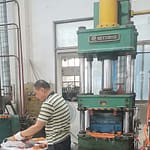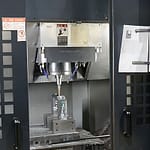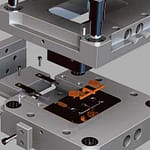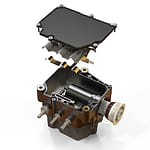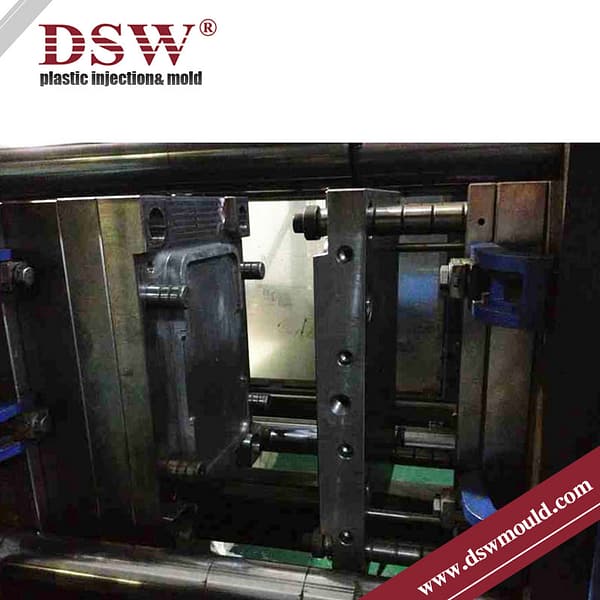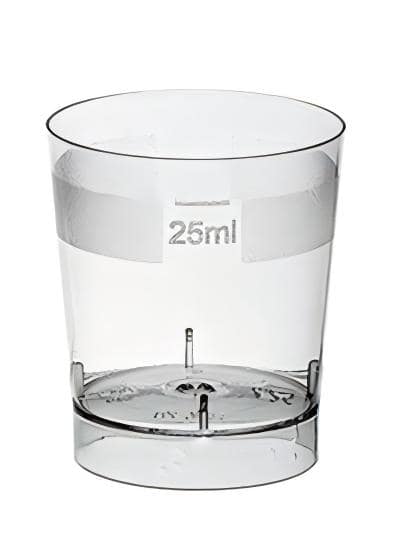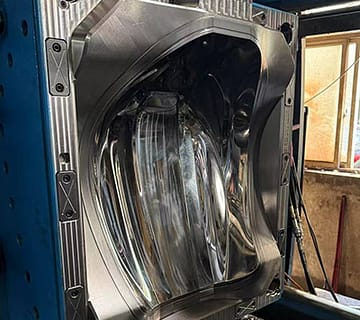Polystyrene is a widely used plastic known for its versatility in injection molding. This article explores polystyrene properties in injection molding, its applications, and its benefits, offering a comprehensive understanding for manufacturers and designers.
Introduction to Polystyrene
Polystyrene (PS) is a commodity thermoplastic with an amorphous structure. Known for its excellent resistance to gamma rays, it supports sterilization by radiation. PS plastics can be transparent or opaque, with unmodified polystyrene being clear, rigid, brittle, and moderately strong. It is cost-effective and widely used in injection molding.
Chemical Structure and Properties
Polystyrene is a vinyl polymer with a benzene ring as a pendant group, influencing its mechanical, thermal, electrical, and optical properties. Its melting point is approximately 270°C, and it begins to soften at around 205°C. These properties make it ideal for various applications.
Polystyrene Material Properties
The following table outlines the average physical, mechanical, and molding properties for different grades of polystyrene used in injection molding:
| Category | Property | Unreinforced PS | Impact Modified PS | Transparent PS | Heat Resistant PS |
| Physical | Density (g/cm³) | 0.857 | 1.05 | 1.04 | 1.05 |
| Linear Mold Shrinkage Rate (cm/cm) | 0.00509 | 0.006 | 0.00539 | 0.00557 | |
| Rockwell Hardness (R) | 100 | 94.8 | 121 | 105 | |
| Mechanical | Tensile Strength at Yield (MPa) | 43.7 | 25.9 | 43.6 | 45.9 |
| Elongation at Break (%) | 25.8 | 44.8 | 3.14 | 9.74 | |
| Flexural Modulus (GPa) | 3.47 | 2.14 | 3.11 | 2.99 | |
| Flexural Yield Strength (MPa) | 69.2 | 54 | 76.2 | 82 | |
| Injection Molding | Drying Temperature (°C) | 92.2 | 78 | 76.7 | 76.2 |
| Melt Temperature (°C) | 250 | 216 | 220 | 215 | |
| Mold Temperature (°C) | 69.5 | 49.6 | 52 | 52.9 |
Applications of Polystyrene
Polystyrene is one of the six most common plastics, identified by recycle number 6. It is used in products such as party cups, plastic spoons, CDs, and appliance casings due to its favorable properties.
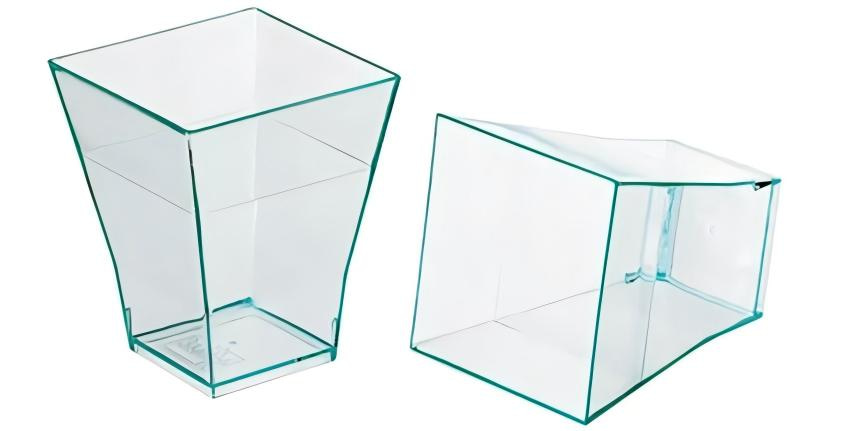
Polystyrene Properties in Injection Molding
Thermal and Mechanical Properties
In injection molding, the thermal and mechanical properties of polystyrene are crucial. The process involves heating, deforming, shaping, and cooling the plastic to retain its new shape. Polystyrene’s high melting point and low shrinkage (around 0.5%) allow for detailed product design and easy mold release.
Measurement and Control
Properties like melt temperature and melt flow index are measured using techniques such as Differential Scanning Calorimetry (DSC) and Thermogravimetric Analysis (TGA).
Injection Molding Process
The screw mechanism drives the injection molding process. Polystyrene’s low shrinkage rate and high rigidity ensure excellent dimensional stability, making it suitable for various products, from small parts to large components.
Design for Polystyrene Injection Molding
Wall Thickness
Recommended wall thickness ranges between 0.76 and 5.1 mm. A gradual transition between sections can achieve a 25% variation in wall thickness.
Ribs & Stiffeners
To prevent sink marks, ribs should be 60% to 50% of the supported wall’s thickness.
Radii
A minimum radius of 25% of the wall thickness is recommended for polystyrene, with up to 75% for high-strength parts.
Draft Angle
To ensure part ejection, draft angles between 0.5% and 1% are recommended, along with a polished mold finish.
Part Tolerances
Part tolerances can be commercial or fine, with fine tolerances offering tighter values.
Advantages of Polystyrene Injection Molding
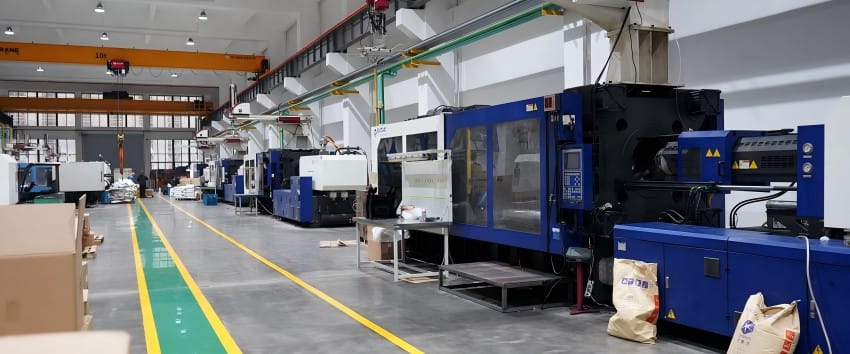
Polystyrene offers several advantages, making it ideal for various applications:
- Transparent: GPPS is transparent with 90% light transmissibility, providing an inexpensive alternative to other transparent plastics.
- Tough and Rigid: HIPS contains additives for increased toughness and rigidity.
- Lightweight: Suitable for food containers, consumer packaging, and smoke detectors.
- Moisture Resistant: Ideal for plastic cutlery and laboratory products.
- Impact Resistant: HIPS is strong enough for protective packaging.
- Dimensionally Stable: Excellent dimensional stability due to its amorphous nature.
- Radiation Resistant: Polystyrene absorbs very little radiation, making it suitable for sterilization purposes.
Polystyrene Material Processing
Injection Pressure
Injection pressures range from 100 to 200 Bar. Maintaining pressure after injection can reduce shrinkage.
Temperature Control
Polystyrene’s melting point is around 217°C. Higher temperatures may improve moldability but can affect glossiness and strength.
Viscosity
Polystyrene’s low viscosity makes it ideal for parts with small features.
Shrinkage
Injection molded polystyrene has low shrinkage values, typically between 0.4% and 0.7%.
Applications of PS Injection Molding
PS injection molding is a versatile manufacturing process extensively used across industries, including automotive, medical, consumer goods, and packaging.
Polystyrene (PS) is a popular material in manufacturing, applied to consumer goods like kitchen appliances, toys, and garden furniture. Its ability to be molded into various shapes and sizes makes it a preferred choice for many manufacturers. For products requiring higher durability, high-impact polystyrene (HIPS) is often selected.
Due to its lightweight, low cost, and ability to be formed into both rigid and foam products, PS is widely used in the packaging industry. This includes food packaging items such as yogurt containers, disposable cutlery, and foam trays.
General-purpose polystyrene, with its transparent, glass-like appearance, is commonly utilized in laboratory vessels and medical equipment, including petri dishes, test tubes, and diagnostic components.
In the automotive industry, polystyrene is used to manufacture components like dashboards, knobs, interior decorative parts, and energy-absorbing parts. Polystyrene injection molding allows manufacturers to produce these components with high precision and efficiency, ensuring top-notch product quality.
Succeeding with Polystyrene Injection Molding
Polystyrene’s lightweight, cost-effectiveness, and moisture resistance make it suitable for a wide range of applications. Following proper design and processing guidelines ensures high-quality injection molded parts.
Polystyrene is an excellent material for injection molding, offering numerous benefits such as low shrinkage and the ability to produce detailed designs. Despite its high melting point, its properties make it a preferred material for many applications.

